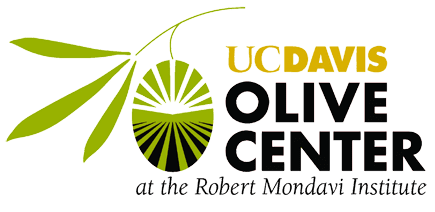
The UC Davis Olive Center announced that it is now offering olive oil chemical and sensory evaluations. Included among the choices of chemical analyses are tests known as DAGs and PPP. UC Davis is the only laboratory in the U.S. providing these particular chemical indicators of olive oil quality, said the center’s director Dan Flynn.
The decision to offer chemical analyses was driven by requests from producers, retailers and importers, according to Flynn.
Flynn stated that most oils pass the International Olive Council (IOC) and United States Department of Agriculture (USDA) chemistry standards for extra virgin even though sensory tests fail the same oils for rancid and fusty flavors.
A 2010 UC Davis Olive Center report indicated that the IOC/USDA chemical standards would be more effective if they included the newer chemical standards adopted by Germany and
Australia that measure DAGs (1,2 diacylglycerol) and PPP (pyropheophytins) levels and correlate well with sensory tests.
The UC Davis Olive Center offers the DAGs/PPP test as well as other chemistry and sensory tests.
The sensory tests have been offered for about eight months, said Flynn. He indicated that the center’s tests provide more descriptive terms than the IOC/USDA sensory tests. For example, the IOC/USDA requires testing the fruitiness of an oil. The Olive Center tests will further elaborate on the characteristics of fruitiness, with descriptive terms such as, floral, green apple, green almond or banana.
Sensory panels contain at least eight trained tasters. Many of the testers have been on panels for as long as ten years while others are apprentices with more than two years experience. The testers generally meet weekly but Flynn said that the goal is to get results quickly to producers and if the demand is there, the sensory tests may be scheduled more frequently.
Results of chemical and sensory tests are confidential but data (without producer names) may be collected for research purposes, noted Flynn.



